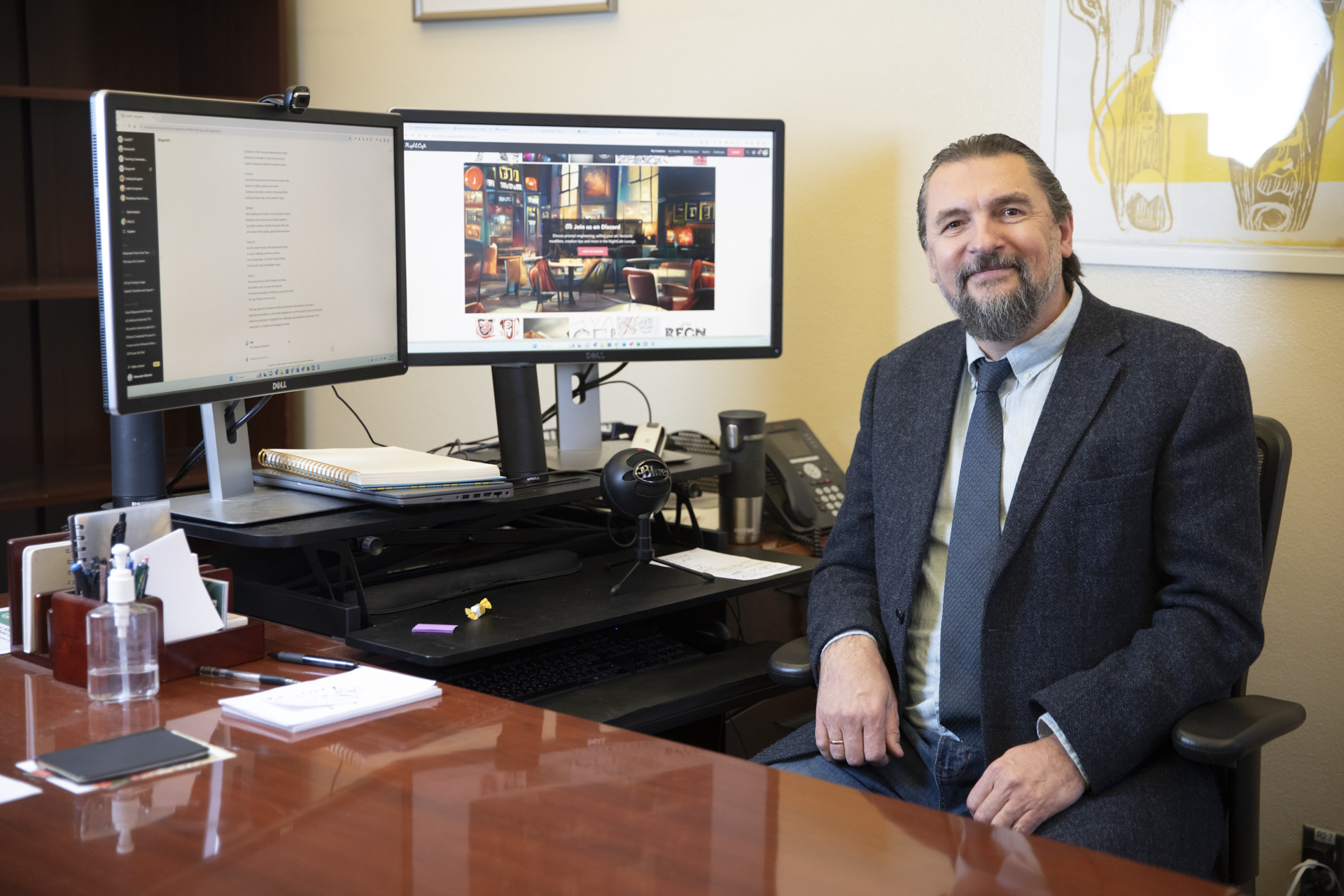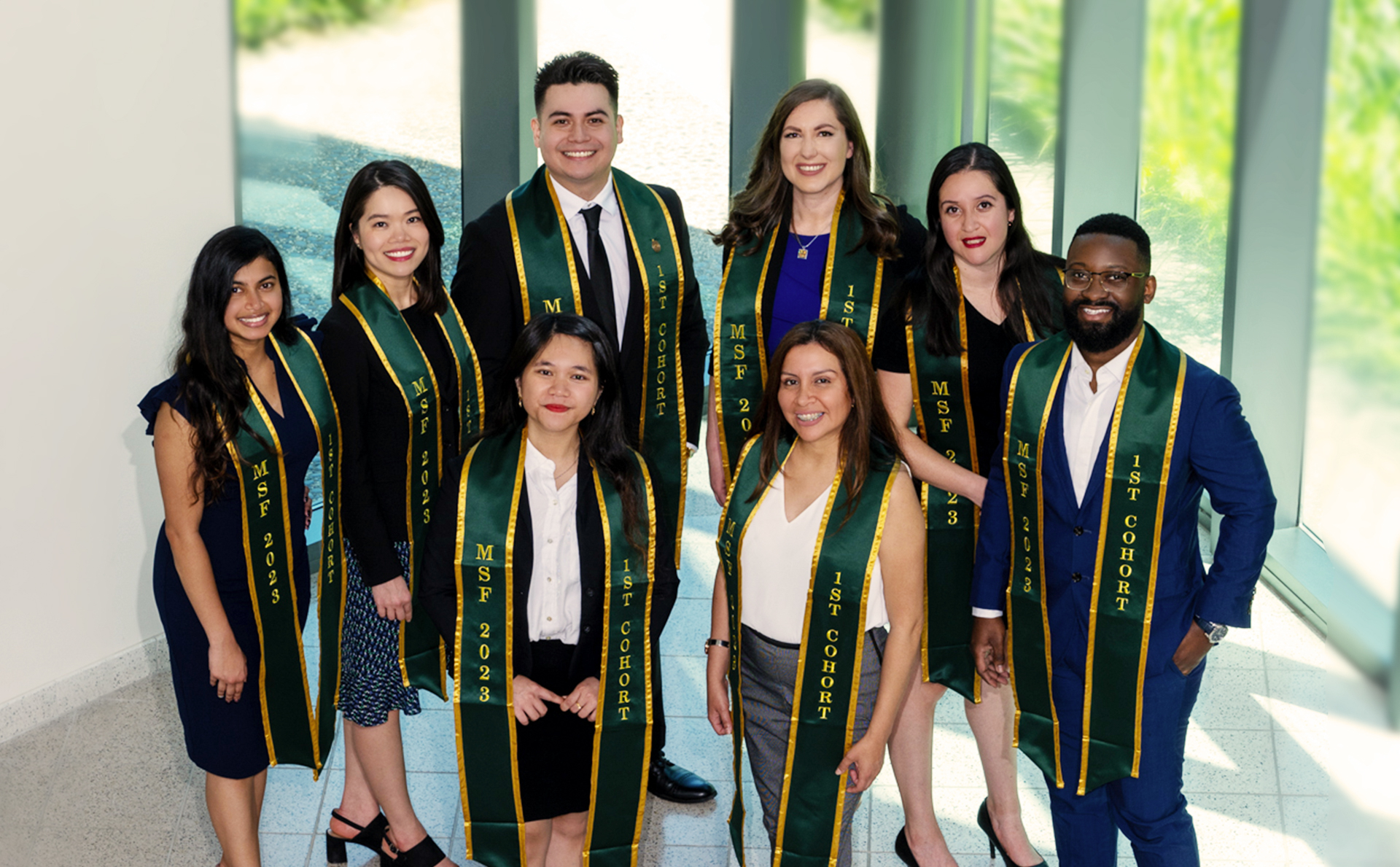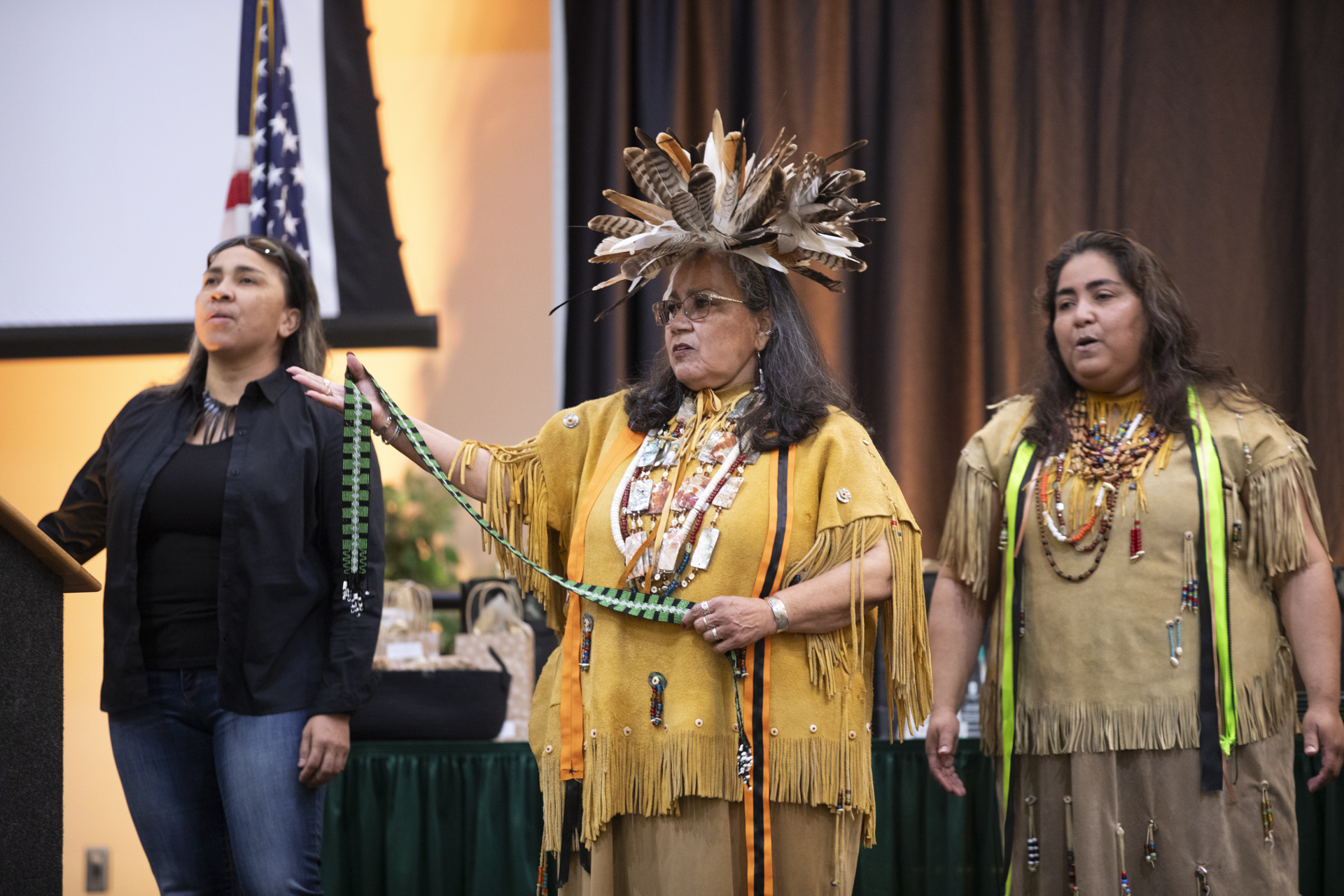Story Content
Artificial intelligence experts share insights on the technology’s effects on education and society
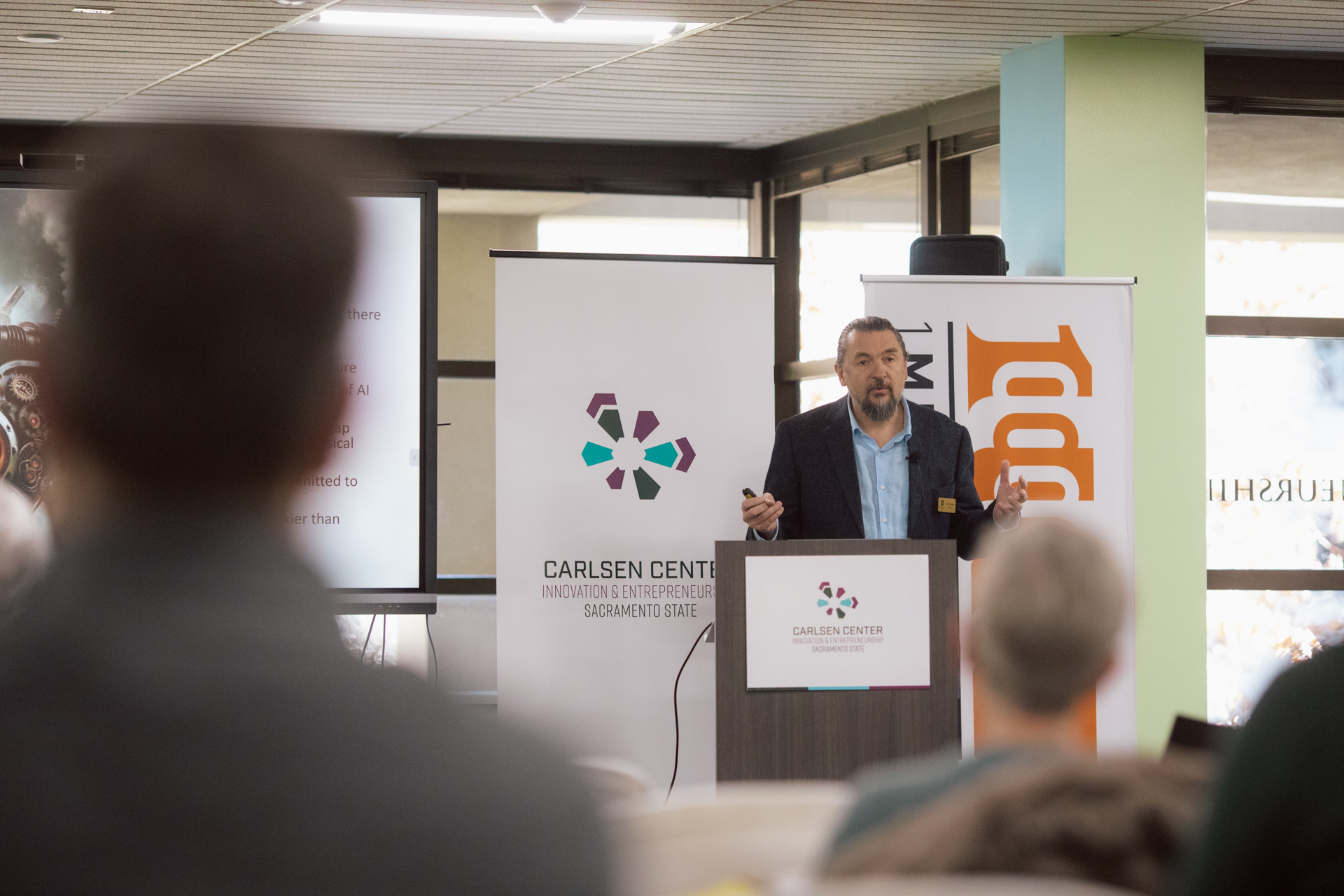
March 14, 2024
A panel of artificial intelligence experts explored the impacts of generative AI on the economy, education and society during a recent event at Sacramento State aimed at highlighting the emerging technology’s transformative power.
The Carlsen Center for Innovation and Entrepreneurship hosted the panel discussion on March 13 in partnership with the University’s National Institute on AI in Society (NIAIS).
The event was part of Sac State’s ongoing work to be a leader in advancing the use and ethical application of AI.
NIAIS head Alexander “Sasha” Sidorkin kicked off the discussion with a presentation on issues such as AI myths and how the emerging technology will impact the education system.
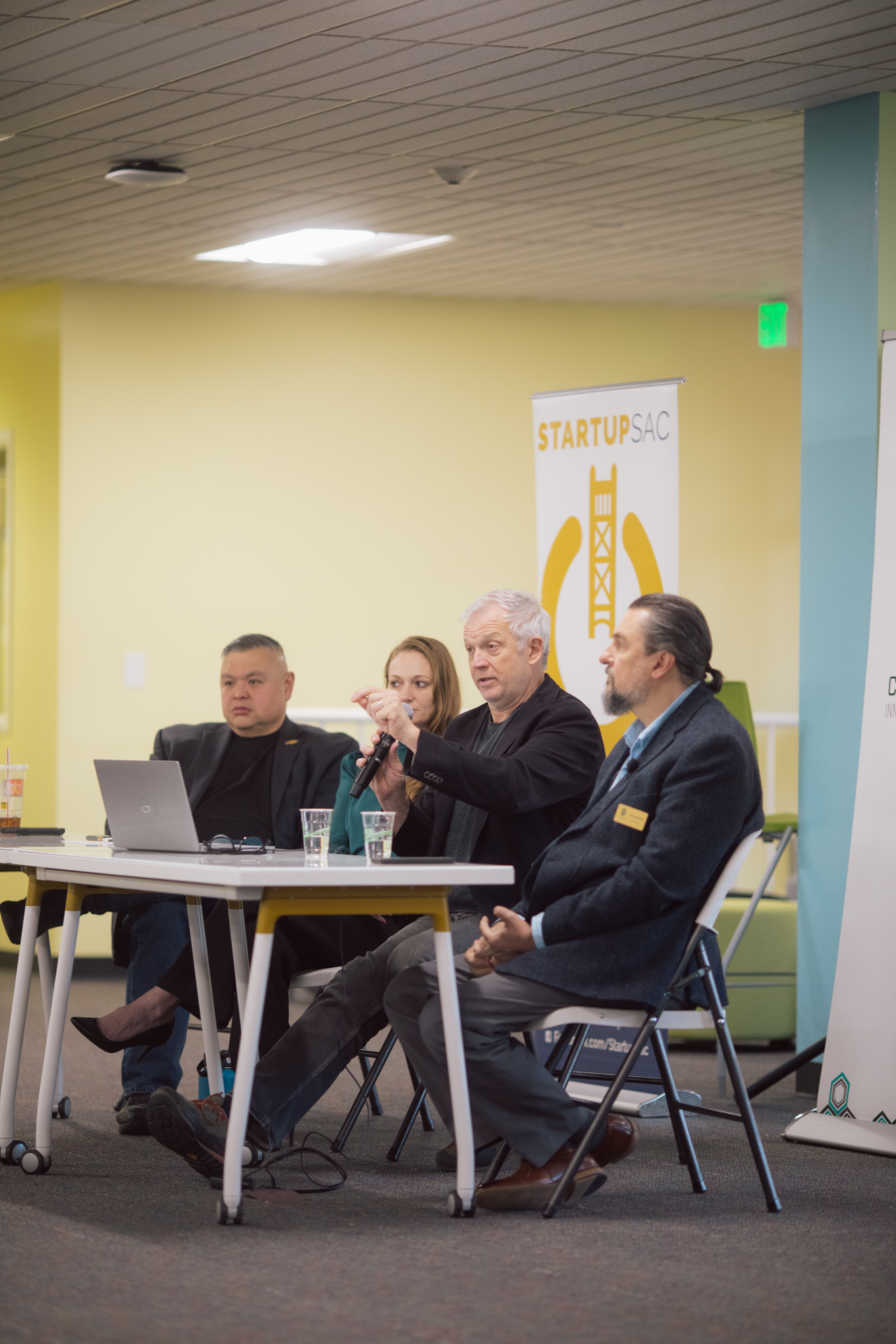
“Some people call to stop developing AI, but it’s really a risky position because if we stop, other countries won’t,” Sidorkin said. “I think it’s important to understand that with more powerful computers, artificial intelligence in our hands is better than the same thing somewhere else.”
Although some have expressed concerns that AI could pose a threat to humanity, Sidorkin said the technology isn’t able to be inherently evil, since it lacks human emotion and thought. However, he said, its actions could lead to destruction if not properly managed.
“I just want to remind people that you can unplug any computer and it will stop working,” Sidorkin said. “There has not been a single case documented where a computer has done something on its own volition, something humans didn’t want it to do.”
Sidorkin also said that although there isn’t enough data to know AI’s full impact, certain job sectors undoubtedly will be affected. However, AI will create new jobs and enable people to accomplish tasks we currently cannot do, he said.
“I’ll give you a little tip here: If there’s anything you don’t like doing because it’s boring, AI is going to do it for you,” Sidorkin said. “It’s really good at boring stuff, writing letters of recommendation, drafting memos, and all of this bureaucratic stuff. Anything creative that you like to do, AI is not probably going to help you because it just doesn’t have that ability.”
A panel of AI experts shared their thoughts and answered questions from the audience.
Sac State Philosophy Professor Matthew McCormick addressed the challenges of AI in education directly, explaining that AI has made traditional class assignments difficult because AI chatbots can do a lot of the students’ work. Argumentative reasoning is critical in philosophical essay writing, he said, but assignments are less effective and more difficult to assess when chatbots can form the arguments.
“That process of paper writing, that's gone now, at least the old school way,” McCormick said. “I can bring them to the classroom and have them sit down by hand and write an essay, but that is not like the good old-fashioned college essay where you get to go home, write it and come back. So, I am worried about that, and I’m trying to deal with that, and I want to come up with some good, new clever ideas.”
The panel also included Heather Gold, executive director of educational programs at Gateway Community Charters, and Rich Foreman, chief technology officer at MarketingHero and chief operations officer at IGH Naturals.
Attendees asked panelists about a range of topics, including the evolution of NIAIS, how AI works, legal issues when using AI-generated content, fact-checking and accuracy of AI outputs, how to save money while increasing service when using AI, and workforce competition among those who adapt to using AI and those who don’t.
One woman, who said she works in the environmental field, wanted to know how to approach learning how to use AI, as its rapid evolution can render online classes and certifications outdated within weeks. Panel members agreed the best approach is just to use it and get comfortable with it, but also offered ideas on how to keep up to date.
“What I’ve actually been finding that’s amazing to keep on top of things is YouTube,” Foreman said. “It really is almost daily, it’s like there’s something new and you know with all these different companies coming out, and there’s just so much.”
“Some people call to stop developing AI, but it’s really a risky position because if we stop, other countries won’t. I think it’s important to understand that with more powerful computers, artificial intelligence in our hands is better than the same thing somewhere else.” -- Sasha Sidorkin, head of the National Institute on Artificial Intelligence in Society
Don Button, a professor at Sacramento City College, asked how education might evolve if students aren’t learning the basics of writing and other disciplines efficiently because they’re utilizing AI chatbots. Many students, he said, already struggle due in part to the passage of legislation that has made changes to remedial math and English coursework.
“Policies and everything are going to have to change, but it’s about how do we start to have conversations to find that balance?” Gold responded. “There is a level of skill that they need to be able to have, but there are technologies we use for students with (disabilities), and they’re allowed to have that on their assessments. So I do think that technology can aid and provide access for English-language learners and students with special needs.”
Media Resources
Faculty/Staff Resources
Looking for a Faculty Expert?
Contact University Communications
(916) 217-8366
communications@csus.edu
